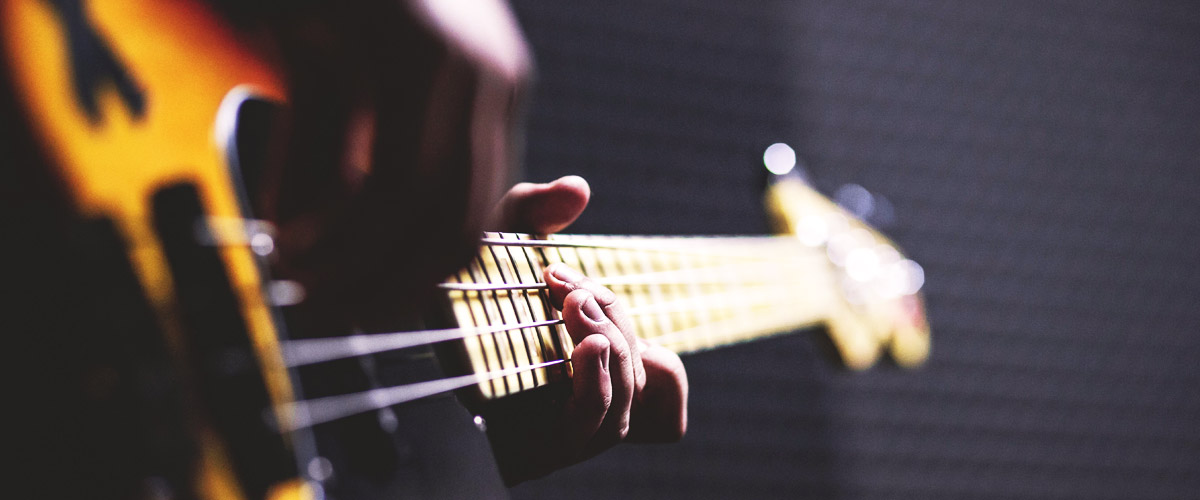‘Do not be deceived, God is not mocked, whatever a man sows, that he will also reap.’ (Galatians 6:7)
For many musicians, the idea of being brilliant is everything they hope for. But the necessary discipline of getting there is everything they avoid. In order to be brilliant as a musician, you need to spend time with your instrument. You need to spend time with music. Playing it. Listening to it. Decoding it: taking it apart and understanding how it works. This is called practice.
Practice, Practice, Practice
A musician needs to practice scales, arpeggios. You need to get your fingers to work fluidly. There is a thing called muscle memory you need to establish, so that before you’ve even thought of a note or chord, your hand is already half way there.
Be a good steward of the talent God has given you. Multiply it.
The challenge for most beginner musicians is they plateau early on. They get good enough to play a song they really like. Good enough to impress their girlfriend or to join the church band. But once they arrive there, they invest little or no time into practice, so they never improve beyond a fairly rudimentary level.
We need to keep pushing ourselves. Push ourselves above and beyond what we’ve done before. Be a good steward of the talent God has given you. Multiply it. Watch it grow.
1. Establish Good Practice Habits
Let practice become a habit.
I once had the privilege of seeing Dave Weckl deliver a workshop. He is arguably one of the most accomplished drummers of his generation. During the Q&A, someone asked him what practice looked like for him.
First he laughed a bit; there’s really nothing left in drumming that he can’t do! But then his answer was this. He still practices, especially before a big tour, to keep in shape. To make sure he’s not loosing what he has. To keep his stamina strong. To keep his muscle memory well tuned.
While I can’t compare myself to Mr Weckl, similarly to him, how I practice now looks different from when I first started out. Having played piano for over 25 years, I don’t, as often, sit down and do my scales like I used to in the beginning. But my son, who has only been playing a couple of years, is only now discovering scales. For him, the journey of playing scales has only just begun!
However practice looks for you, make sure you practice. Make it a habit.
2. Remove Distractions
Reading is not practice.
Watching YouTube is not practice. Today, there are so many online helps and instructional YouTube videos that it is easy to spend more time watching than emulating. Watching 3-4 hours of someone else practicing is not the same as you practicing.
Discovering new sounds on your effects pedal or synthesizer is not practice.
Don’t fall into these traps. Find a quite space, just you and your instrument. Practice simple things. Give yourself time.
3. Set Goals
20 minutes every day is better than 3 hours once a week.
Muscle memory is a form of procedural memory. In other words, you consolidate a specific motor task into memory through repetition. This means “little and often” is better than a whole lot and then a long gap before the next time.
Also set goals in what you want to achieve.
Learn scales and arpeggios. If you are a drummer, practice rudiments. If you are an acoustic or rhythm guitarist, practice strumming consistently, in time. Get your head not just around your instrument and how that works, but around music itself and how that works.
Again, learning one scale a week and getting to the point where you can play it fluidly, is better than learning all your scales in an afternoon, but not being able to play any of them very well.
4. Use a Metronome
It does not matter what instrument you play, get a metronome. You can buy a metronome or download one for free on your smart phone. Use it!
There is nothing more irritating in a group context than poor timing. Tuning is easy to fix. Poor tone is excusable in beginners. Not knowing the material can be put down to inexperience. But there is no excuse for bad timing. It’s just lazy!
If you can hear the metronome, you’re probably out of time. Whatever you are doing – scales, songs, whatever – practice to a metronome.
5. Be Deliberate
Learn to control every sound coming from your instrument. Any sound you didn’t make on purpose is “noise”. Learn to stop the noise!
For a guitarist, this may mean learning to dampen strings. For a keyboard or piano player, it may mean learning to use the damper pedal correctly. For a drummer, it may mean controlling your sticks better.
Get to the point where every noise your instrument makes is something you decided to do.
Don’t Practice Till You Get it Right
Finally, I’ve said this a thousand times, but I can’t say it better than the way my piano teacher told me:
‘Don’t practice till you get it right, practice till you can’t possibly get it wrong.’











